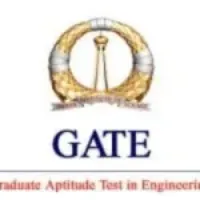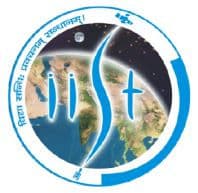Latest Applications Open 2024:
GATE 2025 Syllabus of Electrical Engineering has been Released. Graduate Aptitude Test in Engineering (GATE 2025) is an examination that primarily tests the comprehensive understanding of the candidates in various undergraduate subjects in Engineering/ Technology/ Architecture and postgraduate level subjects in Science. IISc Banglore conducts its Exam.
The GATE 2025 score of a candidate reflects a relative performance level in a particular subject in the examination across several years. The score is used for admissions to post-graduate programs (e.g., M.E./M.Tech/ Direct PhD) in centrally funded Indian Institutes of higher education (i.e., Institutes that are provided with financial assistance by MHRD and other Government agencies).
Some Public and Private Sector Undertakings also use the score for employment processes in India. The Indian Institute of Science (IISc) and seven Indian Institutes of Technology (IITs at Bombay, Delhi, Guwahati, Kanpur, Kharagpur, Madras, and Roorkee) jointly administer the conduct of GATE 2025.
GATE 2025 Electrical Engineering Syllabus – PDF Released
GATE 2025 Electrical Engineering Syllabus has been Released. Download the Electrical Engineering Syllabus Pdf.
Section 1: Engineering Mathematics
- Linear Algebra: Matrix Algebra, Systems of linear equations, Eigenvalues, Eigenvectors.
- Calculus: Mean value theorems, Theorems of integral calculus, Evaluation of definite and improper integrals, Partial Derivatives, Maxima and minima, Multiple integrals, Fourier series, Vector identities, Directional derivatives, Line integral, Surface integral, Volume integral, Stokes’s theorem, Gauss’s theorem, Green’s theorem.
- Differential equations: First-order equations (linear and nonlinear), Higher order linear differential equations with constant coefficients, Method of variation of parameters, Cauchy’s equation, Euler’s equation, Initial, and boundary value problems, Partial Differential Equations, Method of separation of variables.
- Complex variables: Analytic functions, Cauchy’s integral theorem, Cauchy’s integral formula, Taylor series, Laurent series, Residue theorem, Solution integrals.
- Probability and Statistics: Sampling theorems, Conditional probability, Mean, Median, Mode, Standard Deviation, Random variables, Discrete and Continuous Distributions, Poisson distribution, Normal distribution, Binomial distribution, Correlation analysis, and Regression analysis.
- Numerical Methods: Solutions of nonlinear algebraic equations, Single and Multi-step methods for differential equations.
- Transform Theory: Fourier Transform, Laplace Transform, z-Transform.
Electrical Engineering
Section 2: Electric Circuits
Network graph, KCL, KVL, Node, and Mesh analysis, Transient response of dc and ac networks, Sinusoidal steady-state analysis, Resonance, Passive filters, Ideal current and voltage sources, Thevenin’s theorem, Norton’s theorem, Superposition theorem, Maximum power transfer theorem, Two-port networks, Three-phase circuits, Power and power factor in ac circuits.
Section 3: Electromagnetic Fields
Coulomb’s Law, Electric Field Intensity, Electric Flux Density, Gauss’s Law, Divergence, Electric field and potential due to point, line, plane, and spherical charge distributions, Effect of the dielectric medium, Capacitance of simple configurations, Biot-Savart’s law, Ampere’s law, Curl, Faraday’s law, Lorentz force, Inductance, Magnetomotive force, Reluctance, Magnetic circuits, Self and Mutual inductance of simple configurations.
Section 4: Signals and Systems
Representation of continuous and discrete-time signals, Shifting and scaling operations, Linear Time-Invariant and Causal systems, Fourier series representation of continuous periodic signals, Sampling theorem, Applications of Fourier Transform, Laplace Transform and z-transform.
Section 5: Electrical Machines
Single-phase transformer: equivalent circuit, phasor diagram, open circuit, and short circuit tests, regulation and efficiency; Three-phase transformers: connections, parallel operation; Auto-transformer, Electromechanical energy conversion principles, DC machines: separately excited, series and shunt, motoring and generating mode of operation and their characteristics, starting and speed control of dc motors;
Three-phase induction motors: the principle of operation, types, performance, torque-speed characteristics, no-load and blocked rotor tests, equivalent circuit, starting and speed control; Operating principle of single-phase induction motors; Synchronous machines: cylindrical and salient pole machines, performance, regulation and parallel operation of generators, starting of synchronous motor, characteristics; Types of losses and efficiency calculations of electric machines.
Section 6: Power Systems
Power generation concepts, AC, and DC transmission concepts, Models and performance of transmission lines and cables, Series and shunt compensation, Electric field distribution and insulators, Distribution systems, Per-unit quantities, Bus admittance matrix, Gauss-Seidel, and Newton-Raphson load flow methods, Voltage and Frequency Control, Power factor correction, Symmetrical components, Symmetrical and unsymmetrical fault analysis, Principles of overcurrent, differential and distance protection; Circuit breakers, System stability concepts, Equal area criterion.
Section 7: Control Systems
Mathematical modelling and representation of systems, Feedback principle, transfer function, Block diagrams, and signal flow graphs, Transient and Steady-state analysis of linear time-invariant systems, Routh-Hurwitz and Nyquist criteria, Bode plots, root loci, Stability analysis, Lag, Lead and Lead-Lag compensators; P, PI and PID controllers; State-space model, State transition matrix.
Section 8: Electrical and Electronic Measurements
Bridges and Potentiometers, Measurement of voltage, current, power, energy and power factor; Instrument transformers, Digital voltmeters and multimeters, Phase, Time and Frequency measurement; Oscilloscopes, Error analysis.
Section 9: Analog and Digital Electronics
Characteristics of diodes, BJT, MOSFET; Simple diode circuits: clipping, clamping, rectifiers; Amplifiers: Biasing, Equivalent circuit, and Frequency response; Oscillators and Feedback amplifiers; Operational amplifiers: Characteristics and applications; Simple active filters, VCOs and Timers, Combinational and Sequential logic circuits, Multiplexer, Demultiplexer, Schmitt trigger, Sample and hold circuits, A/D and D/A converters, 8085Microprocessor: Architecture, Programming, and Interfacing.
Section 10: Power Electronics
Characteristics of semiconductor power devices: Diode, Thyristor, Triac, GTO, MOSFET, IGBT; DC to DC conversion: Buck, Boost and Buck-Boost converters; Single and three-phase configuration of uncontrolled rectifiers, Line commutated thyristor-based converters, Bidirectional ac to dc voltage source converters, Issues of line current harmonics, Power factor, Distortion factor of ac to dc converters, Single-phase and three-phase inverters, Sinusoidal pulse width modulation.
Other GATE Related Syllabus PDF
If you have any queries regarding the GATE 2025 Electrical Engineering Syllabus, you can ask your query and leave comments below.

As a dedicated Biology Science graduate, I’m passionate about sharing the latest updates in national and state entrance exams through my blog. I aim to keep aspiring students informed about exam trends, important dates, and changes in syllabi. With a keen interest in education, I strive to offer valuable insights for students navigating the competitive landscape of entrance examinations and admission tests. Stay updated with me.


